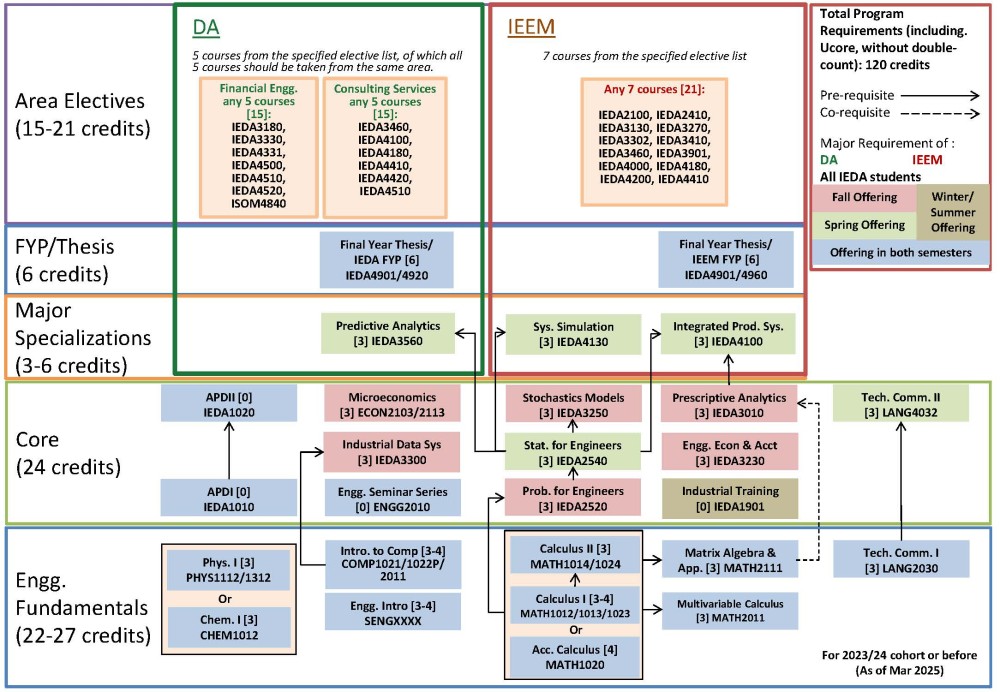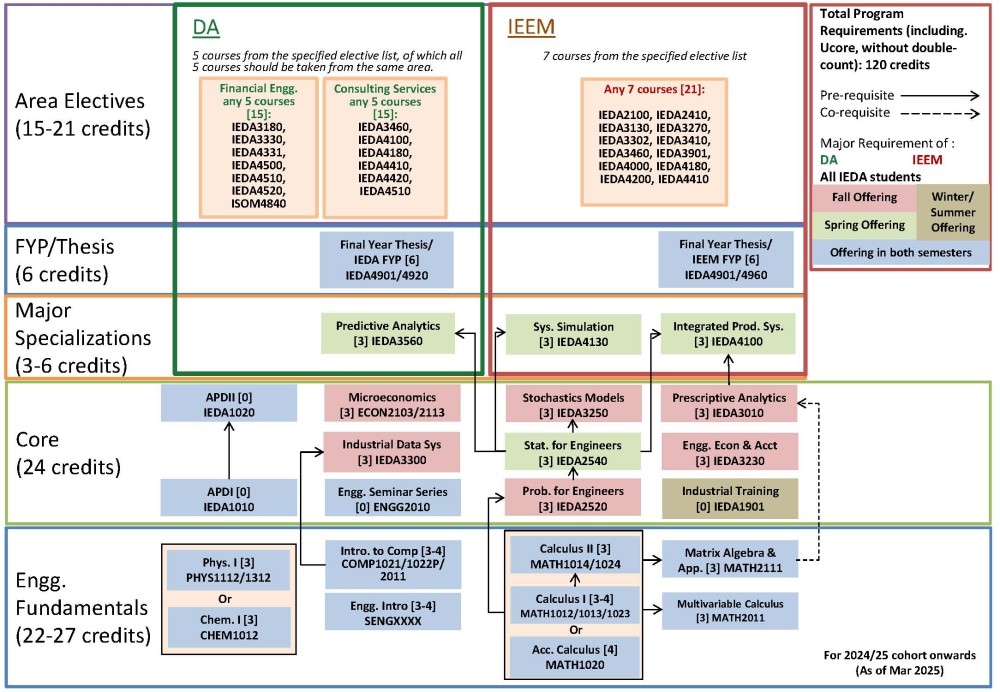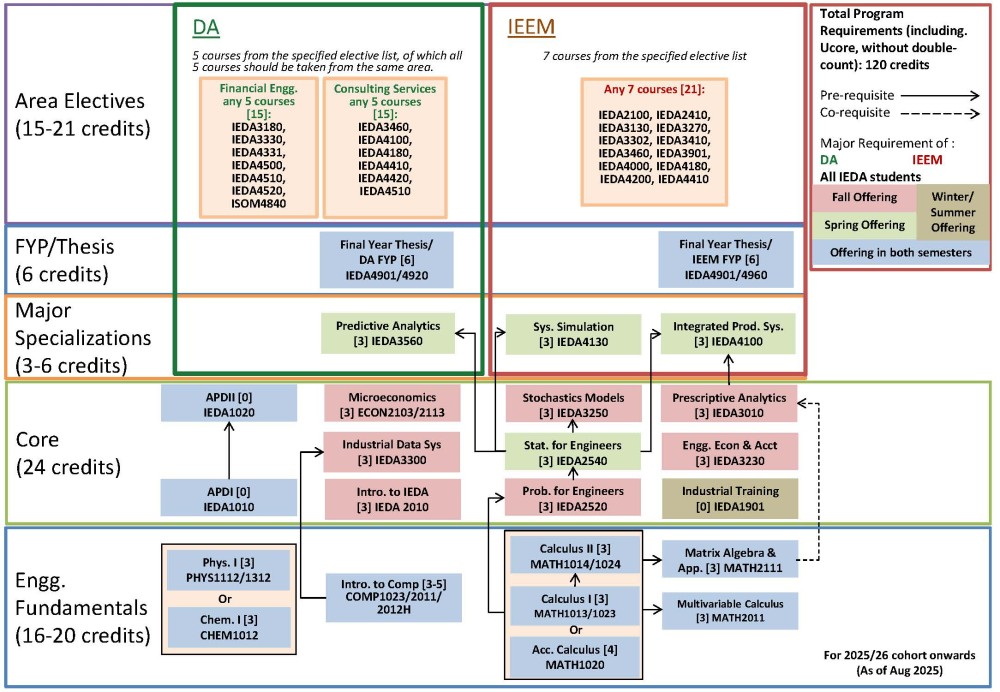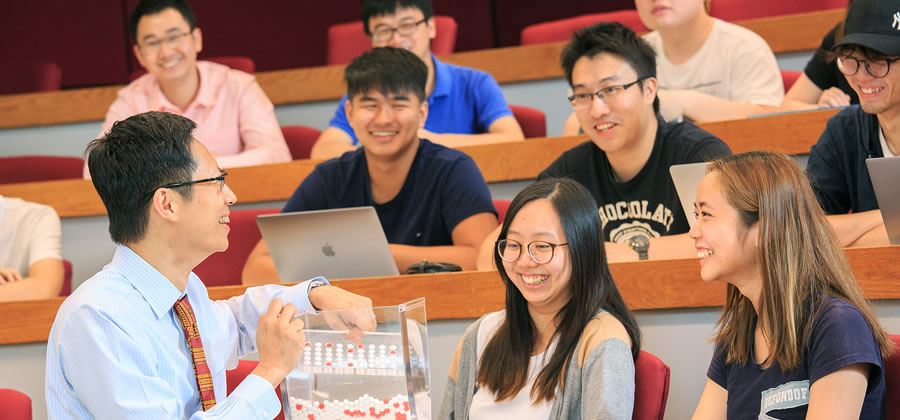
Hong Kong is rapidly transforming into a knowledge-based economy. To keep up with our best efforts in providing world-class tertiary education and training future leaders in the field of Industrial Engineering, our undergraduate program on Industrial Engineering and Engineering Management (IEEM) is adopting a modern, Decision Analytics approach. Our curriculum includes predictive and prescriptive analytical tools, statistical models, machine learning algorithms, simulation, and creative modeling – which make it more in line with the modern economy. Building upon this foundation of techniques, students will be equipped with domain specific knowledge, ranging from operations planning and scheduling to transportation systems and policies, from supply chain management to management of technology and innovation.
- An ability to apply knowledge of mathematics, science, and engineering to optimize the productivity and logistics operations of a business
- An ability to design and conduct experiments, as well as to analyze and interpret data to improve business and service operations
- An ability to design a system, component or process with respect to desired objectives and constraints, such as economic, environmental, social, political, ethical, health and safety, manufacturability and sustainability
- An ability to function on multi-disciplinary teams
- An ability to identify, formulate and solve engineering problems
- An ability to understand professional and ethical responsibility
- An ability to communicate effectively
- An ability to understand the impact of engineering solutions in a global and societal context, especially the importance of health, safety and environmental considerations
- An ability to stay abreast of contemporary issues
- An ability to recognize the need for, and to engage in life-long learning
- An ability to use the techniques, skills, and modern engineering tools necessary for developing engineering solutions to manage a business.
- An ability to design and use the computer/IT tools to solve problems in industrial engineering.
Undergraduate Program Educational Objectives of IEDA Department
- To equip and develop students’ managerial and technical skills as well as gain a broad foundation in the areas of industrial engineering and engineering management
- To equip students with problem solving skills to improve the productivity of a business
- To equip students with the IT skills to analyze and manage information efficiently for a business operation
- To equip students with ability to conduct product and/or service development from design to market with special emphasis on the people aspects of idea generation, logistics, quality and safety management
- To educate our students to meet the ABET criteria* 3f-3j outcomes via department, school and university level programs.
- Students - To give all students, undergraduate and postgraduate alike, a broadly based university experience that includes: superior training in their chosen fields of study; a well-rounded education that enhances the development of their creativity, critical thinking, global outlook, and cultural awareness; a campus life that prepares them to be community leaders and lifelong learners
- Faculty and Staff - To provide a dynamic and supportive working environment in which faculty and staff may continually develop intellectually and professionally
- Research - To be a leading institution for research and postgraduate study, pursuing knowledge in both fundamental and applied areas, and collaborating closely with business and industry in promoting technological innovation and economic development
- Campus Culture- To provide an open environment and atmosphere conducive to the exchange of knowledge, views, and innovative ideas among students, faculty, staff, and visiting scholars
- Commitment to Hong Kong- To promote and assist in Hong Kong's economic and social development, and to enrich Hong Kong's culture
| University Objectives | |||||
|---|---|---|---|---|---|
| Program Objectives | 1 | 2 | 3 | 4 | 5 |
| 1 | X | X | |||
| 2 | X | X | X | ||
| 3 | X | X | X | ||
| 4 | X | X | X | X | |
| 5 | |||||
BEng in IEEM is accredited by the Hong Kong Institution of Engineers (HKIE) in both Logistics & Transportation and Manufacturing, Industrial & Systems disciplines, as well as the Chartered Institute of Logistics & Transport in Hong Kong (CILTHK), enabling graduates to become professional engineers recognized internationally.
Graduates from this program will possess strong analytical skills as well as the ability to develop algorithms and simulation models for decision-making in designing, managing and improving operations of modern enterprises, and to provide optimal solutions to decision problems in logistics, production, and service operations, driven by real-world data. They are managers, engineers, consultants and analysts who take up supervisory and managerial roles in various industries including:
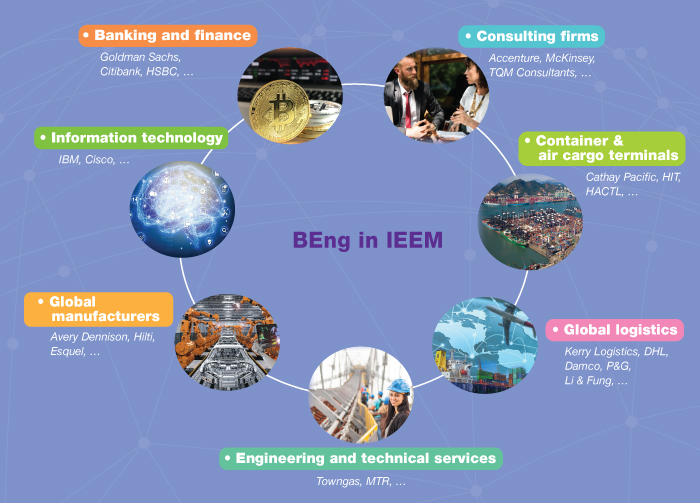
Students may also continue their studies for Master of Science (MSc), Master of Philosophy (MPhil) and Doctor of Philosophy (PhD) degrees in local and overseas universities.
Employment Statistics – Distribution of Graduates by Job Nature
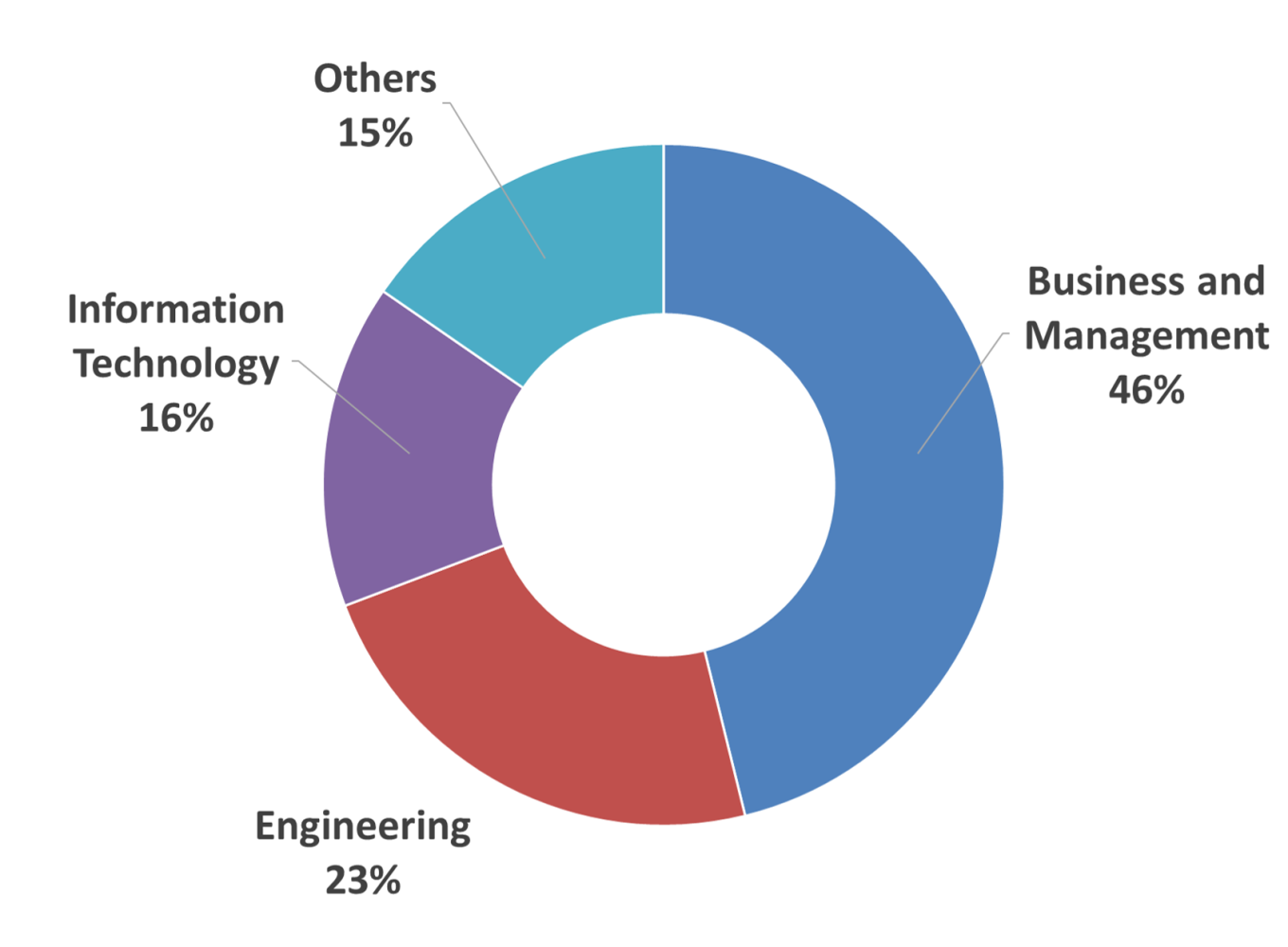
Source: Graduate Employment Survey, Career Center, HKUST
From Academic Year 2025/26 onwards, applicants can first admit to the School of Engineering via school-based admission or directly to the Department of Industrial Engineering and Decision Analytics. Students may later declare their major in BEng in Industrial Engineering and Engineering Management. For more details on the admission requirements, please visit IEDA website.
We offer a flexible curriculum where students can declare their areas of specialization as early as their second year of study.
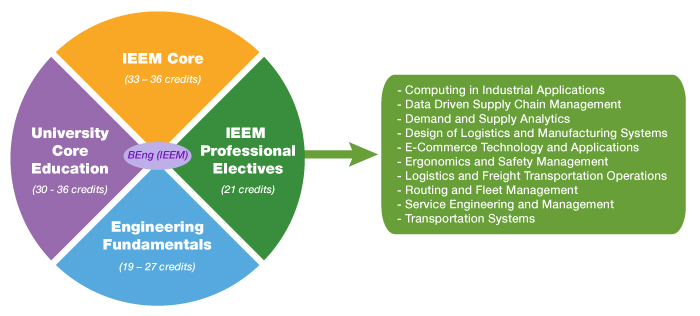
- For students admitted in 2022/23
- For students admitted in 2023/24
- For students admitted in 2024/25
- For students admitted in 2025/26
- University Common Core Requirements (for students admitted in 2021/22 or before)
- University Common Core Requirements (for students admitted in 2022/23 to 2024/25)
- University Common Core Requirements (for students admitted in 2025/26 onwards)
- IEDA Course Catalog
- Program Leaflet
- For students admitted in 2022/23
- For students admitted in 2023/24
- For students admitted in 2024/25
- For students admitted in 2025/26
In addition to the major, students may enhance their knowledge in some areas by choosing the following options:





